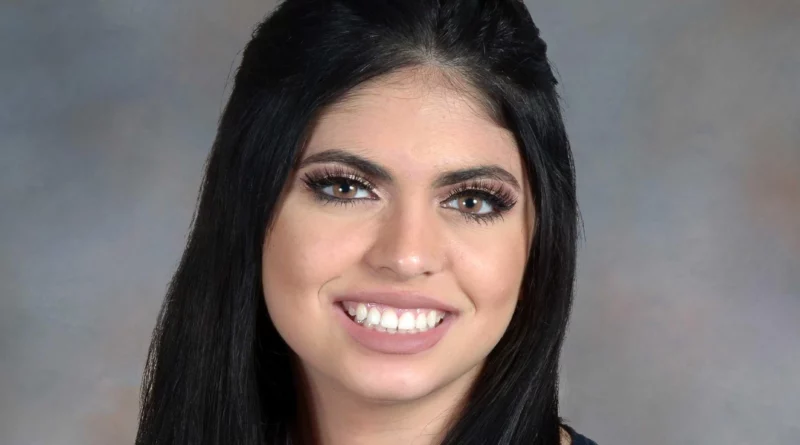Cayley Mandadi Senseless Murder in San Antonio Texas
The tragic death of Cayley Anita Mandadi in October 2017 stunned the Trinity University community and resonated across Texas. A vibrant sophomore and cheerleader, she was remembered for her bright spirit and promise. The events surrounding her final days, however, became the center of one of the state’s most closely followed criminal cases. While prosecutors would call it murder, defense attorneys argued that other factors caused her death. Years of trials, retrials, and appeals followed, leaving behind a heartbreaking story of loss, questions, and controversy.
Early Life and Background
Cayley Anita Mandadi was born on August 26, 1998, and grew up in League City, Texas. Friends and family described her as a cheerful, ambitious, and compassionate young woman who possessed an adventurous energy. At Trinity University in San Antonio, she excelled academically and socially. She joined the cheerleading squad, representing her school at games and events, and built close ties with her teammates.
Her family recalled her as deeply caring, with a zest for life and a strong will. Those who knew her emphasized her intelligence and her openness to new experiences. Her future seemed full of potential, but fate would intervene in ways no one could have imagined.
The Relationship with Mark Howerton
By 2017, Cayley had begun dating Mark P. Howerton, a man several years older than her. Their relationship was described by some friends as rocky, marked by both attraction and turbulence. At times, friends and family expressed concern about the intensity of the relationship.
On the surface, their connection appeared typical of many young couples. However, events in late October 2017 revealed fractures that would soon become the focus of a criminal investigation. This relationship would ultimately place Howerton at the center of a high-profile legal battle.
The Weekend of Mala Luna
On the weekend of October 28–29, 2017, San Antonio hosted the Mala Luna Music Festival, a popular event drawing thousands of young people. Cayley and Mark attended the festival, reportedly enjoying the atmosphere and live performances.
According to later testimony, there was alcohol and drug use during the event. Defense attorneys later claimed that Cayley had taken MDMA, also known as ecstasy, which contributed to her medical crisis. Prosecutors, however, rejected this as an explanation, arguing instead that she had been violently assaulted.
What occurred after the festival remained unclear, but witnesses noted that Cayley appeared disoriented and unwell. The night of music and celebration spiraled into a medical emergency that would leave her fighting for her life.
The Drive to the Hospital
On the morning of October 29, 2017, Howerton drove Cayley to Seton Edgar B. Davis Hospital in Luling, Texas, a small facility outside San Antonio. She was unconscious, bruised, and in dire condition. Medical staff rushed her into emergency care but quickly recognized the severity of her injuries.
Doctors observed bruising on her face, head, and body, along with other injuries suggesting blunt-force trauma. Her condition was critical, and she was soon declared brain-dead. She was later transferred to a larger hospital, but her prognosis did not improve.
On October 31, 2017, Cayley was removed from life support in Kyle, Texas. At just nineteen years old, her life had come to a tragic and premature end.
The Investigation
Almost immediately, investigators turned their attention to Howerton. His account of what had happened clashed with the physical evidence. He claimed that her collapse was the result of drug use and illness. Prosecutors, however, alleged that she had been beaten, pointing to her injuries and testimony from medical experts.
The autopsy determined the cause of death to be blunt-force trauma to the head and face. The manner of death was ruled homicide. This finding became the foundation for charges against Howerton.
On February 28, 2018, Howerton was arrested and charged with murder and aggravated sexual assault. His case would wind its way through the courts for years, marked by delays, mistrials, and contentious appeals.
The First Trial
The first trial began in December 2019. Prosecutors painted Howerton as abusive and controlling, arguing that he was responsible for Cayley’s fatal injuries. They emphasized the autopsy results, text messages, and witness accounts that suggested fear and conflict within the relationship.
The defense countered by pointing to drug use and alternative explanations. They claimed that Cayley’s injuries could have been caused by nonviolent factors, including the effects of ecstasy, seizures, or a fall.
After days of testimony, the jury deadlocked. A mistrial was declared, leaving the case unresolved and the family without closure.
The Long Wait for Retrial
Following the mistrial, legal maneuvering continued for several years. The defense challenged the handling of evidence, alleged misconduct, and raised double-jeopardy concerns. Appeals courts consistently allowed the case to move forward.
During this period, Cayley’s family continued to seek justice, while Howerton’s defense team prepared for a second chance in court. The community at Trinity University, still mourning their loss, watched developments closely.
Finally, in 2023, the stage was set for a retrial that would once again put every detail under scrutiny.
The 2023 Retrial
The retrial began in June 2023 in San Antonio. Prosecutors once again argued that Howerton assaulted Cayley, causing fatal injuries. They pointed to expert medical testimony that her injuries were not consistent with a simple fall or drug reaction. They highlighted bruises, fractures, and evidence of violence.
The defense reiterated its stance that Cayley had ingested ecstasy, suffered adverse reactions, and may have experienced seizures. They claimed that Howerton had tried to help her and that he was not responsible for her death.
The retrial featured days of emotional testimony from medical professionals, law enforcement, and friends of Cayley. Family members sat through the painful proceedings, reliving their loss in excruciating detail.
The Verdict and Sentence
On June 2, 2023, the jury reached a verdict. They acquitted Howerton of murder but found him guilty of aggravated assault causing serious bodily injury. The distinction was critical: while jurors did not believe the state had proven murder beyond a reasonable doubt, they were convinced he had inflicted harm that led to Cayley’s death.
On June 30, 2023, Howerton was sentenced to twenty years in prison. The decision offered some measure of accountability but left lingering questions about whether true justice had been served. For Cayley’s family, it was both a relief and a heartbreak.
The Appeals Process
Howerton appealed the conviction, arguing that errors had occurred during the trial and that he should have been acquitted. His attorneys focused on issues of jury instructions and the handling of lesser charges.
On July 23, 2025, the Fourth Court of Appeals of Texas upheld the conviction. The court ruled that the evidence supported the verdict and that the trial had been fair. Howerton, now serving his sentence, will be eligible for parole in 2033.
This appellate ruling effectively closed a major chapter in the long legal saga, although the case remains an enduring example of how complex criminal prosecutions can become.
The Aftermath for Family and Friends
Cayley’s death left a void in her family’s life that can never be filled. Her mother, father, and friends continue to speak about her energy, warmth, and dreams. For the Trinity University community, her memory lives on in tributes and remembrances.
The protracted legal battle prolonged the grief, forcing loved ones to repeatedly confront the details of her final days. Yet they remain determined to honor her by remembering her not just as a victim but as a remarkable young woman with a promising future.
Broader Reflections
The case of Cayley Mandadi underscores the challenges faced by courts when medical evidence, conflicting testimonies, and complex relationships collide. It highlights the struggles families endure while navigating the criminal justice system, often for years after a tragedy.
It also raises broader questions about youth culture, drug use, and the vulnerabilities faced by young women in relationships where control and violence may be present. Her story became more than just a case in Texas courts—it became a cautionary tale for communities everywhere.
Conclusion
The death of Cayley Anita Mandadi on October 31, 2017, in San Antonio, Texas, remains a profound tragedy. From her bright beginnings in League City to her life at Trinity University, she touched countless lives. Her final days were marred by pain, confusion, and violence, leading to a criminal case that captivated public attention for years.
Though the courts have rendered their decisions, no verdict can restore what was lost. For her family and friends, the memory of Cayley endures as both a source of sorrow and a call to cherish life’s fragility. Her legacy remains a reminder of the need for compassion, vigilance, and justice.
Discover more from City Towner
Subscribe to get the latest posts sent to your email.




